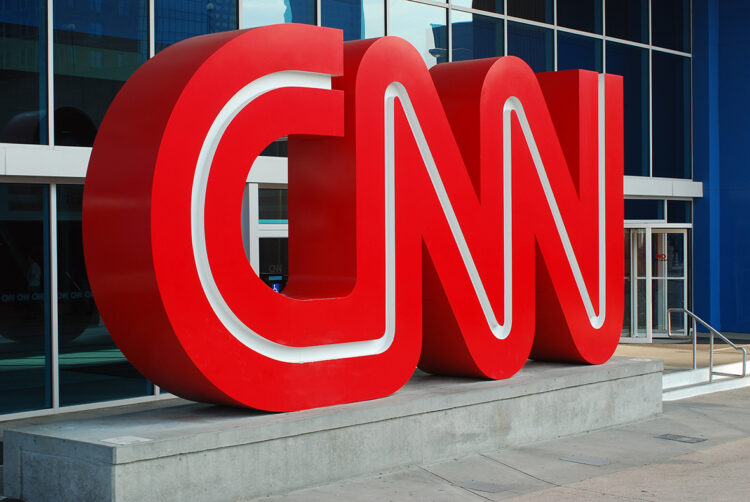Undermining the work of journalists risks eroding trust in all media

Opinion
Media organisations should spend more time listening to their journalists rather than trying to influence what they do.
Sometimes you shake the kaleidoscope and a pattern emerges — in this case, a pattern suggesting increasing tension between journalists and the dictates of senior management.
Mistrust and claims of bias are often the result, with coverage of the Israel-Gaza situation at the heart of many of the controversies.
The most recent, and telling, example of the problem came a few days ago when, according to The Guardian, a wide range of journalists across CNN newsrooms in the US and overseas accused the news channel of censoring Palestinian perspectives and the regurgitation of Israeli propaganda. As a result, the network coverage of the war amounted to “journalistic malpractice”.
The finger of blame is pointed at top editorial management at the Atlanta headquarters and a string of guidelines that include tight restrictions on quoting Hamas, while Israeli government statements are taken at face value.
According to The Guardian, all stories on the war must be cleared by CNN’s Jerusalem office. If true, trust in CNN could be under threat.
Former BBC director-general Sir Mark Thompson took up the posts of editor-in-chief and chief executive of CNN on 9 October, two days after the initial Hamas killings and mass kidnapping of Israelis.
Different portrayals
Early in the conflict, the BBC was also accused by some of its journalists of double standards in how Palestinian and Israeli civilians were portrayed.
In a letter to Al Jazeera, eight journalists alleged that the BBC has failed to tell the story accurately “through omission and lack of critical engagement with Israel’s claims”. In October, a BBC correspondent based in Beirut, Rami Ruhayem, wrote to current director-general Tim Davie claiming that, implicitly at least, the BBC was “treating Israeli lives as more worthy than Palestinian lives”.
At The New York Times and the Los Angeles Times, the direction of travel seems similar, with the alleged imposition by top management of an implicit pro-Israeli line.
The line on Trump
Elsewhere, for Fox News and its coverage of the second presidential campaign of Donald Trump, top management in the shape of Lachlan Murdoch have difficult choices to make.
Will Lachlan, with Rupert Murdoch looking over his shoulder, support — or at least acquiesce support for — Trump even if he is convicted of further serious criminal charges?
The line is already emerging. Last month, it appeared that the ground was being laid to delegitimise the results of the 2024 election if it were to go the “wrong” way when Fox primetime host Laura Ingraham suggested that the Democrats would try to steal the election.
If that turns out to be the line to keep its right-wing viewers happy, Fox journalists who disagree will have no option but to either suck it up or leave.
Pressure is also being put on journalists at TalkTV — which, like Fox, is owned by the Murdochs — to take a particular line to apparently boost poor ratings.
According to an internal memo from TalkTV head of broadcasting Richard Wallace, leaked to Byline Times, the station should “make a fuss” about migrant deaths and “get angry” about issues that would attract viewers.
Wallace, a former editor of the Daily Mirror, said the station should pivot away from “the PO” — an apparent reference to the Post Office scandal — because the audience is “not engaged “ with it.
In pursuit of page views
High-level intervention in setting the line journalists take is not limited to television.
Jim Mullen, chief executive of Reach, whose newspaper empire runs from the Mirror and the Express to the Liverpool Echo and the Manchester Evening News, has been setting out the importance of what many call clickbait.
At a town hall meeting with staff, according to Private Eye, Mullen said the main target was to attract eyeballs to the website and he needed page views. Mullen went on to concede that page views were not a measure of quality, but “we need the page views because that’s how we sell the ads”.
It’s not clear what advertisers will make of the reported Mullen approach or that of journalists who have been arguing that the websites could be made more effective by reducing the volume and intrusiveness of ads.
Ray of hope
It all sounds more than a little gloomy, from television to newspapers, but rather like the funny or uplifting item that used to end ITV’s News at Ten, there is a ray of hope.
It comes from contemporary historian Sir Anthony Seldon. The Thunderer column in The Times this week — actually, it was Sir Anthony’s contribution to the new book How Do We Pay for the BBC after 2027? — provided a little perspective.
The BBC needed reform and had bucked under government pressure over Brexit, but it was needed more than ever in an age of deepfakes, AI, Vladimir Putin and Trump. “The best global validator of what is true, right and objective, it doesn’t always get it right — but it does so more often than any competitor,” Sir Anthony argues.
“Establishing what is the truth and what is human are today’s biggest challenges. The BBC cannot afford to vacate that space,” the historian added.
Maybe the BBC and all the other media organisations mentioned should spend more time listening to their journalists rather than trying to impose artificial lines.
Ultimately, it really is a question of trust.
 Raymond Snoddy is a media consultant, national newspaper columnist and former presenter of NewsWatch on BBC News. He writes for The Media Leader on Wednesdays — read his column here.
Raymond Snoddy is a media consultant, national newspaper columnist and former presenter of NewsWatch on BBC News. He writes for The Media Leader on Wednesdays — read his column here.



